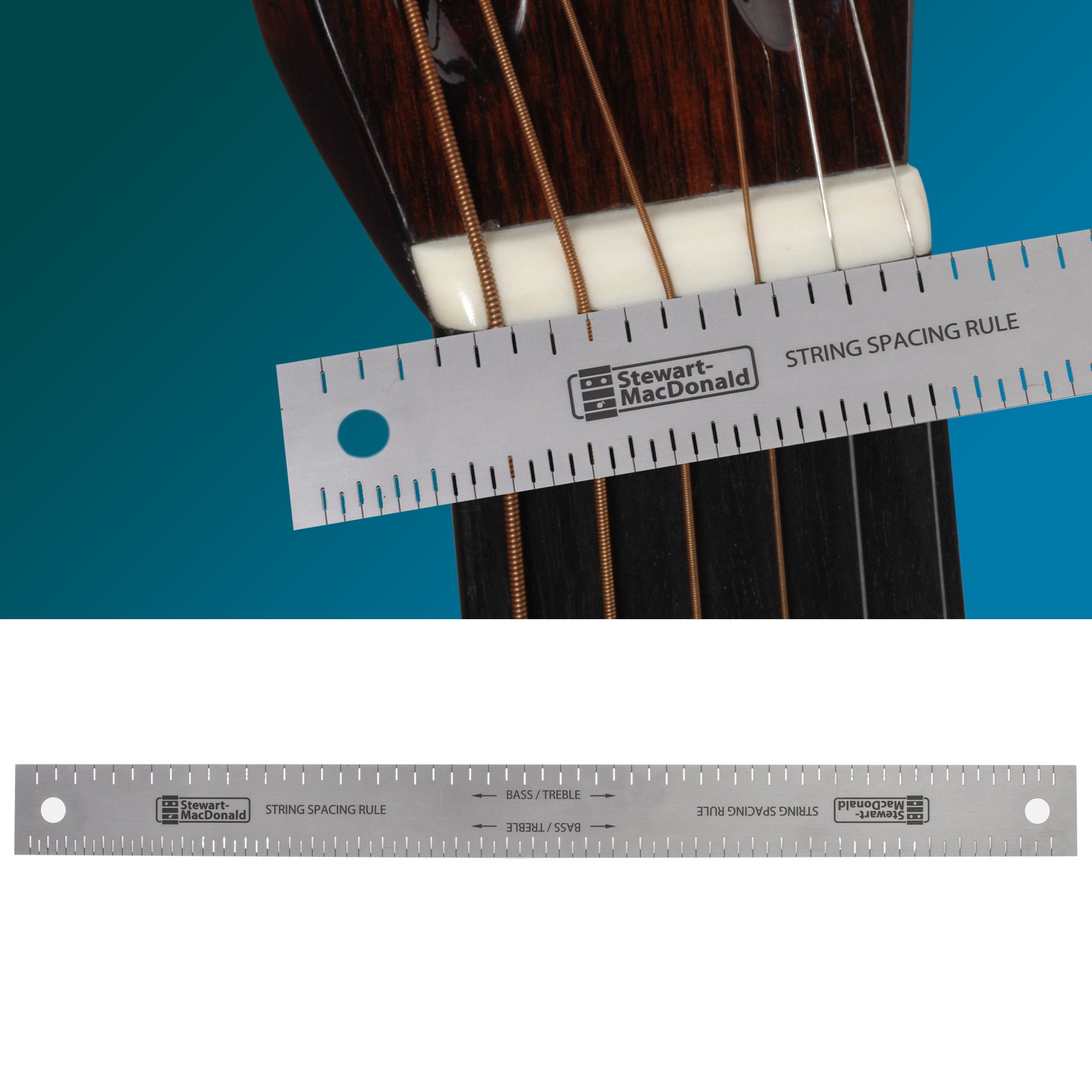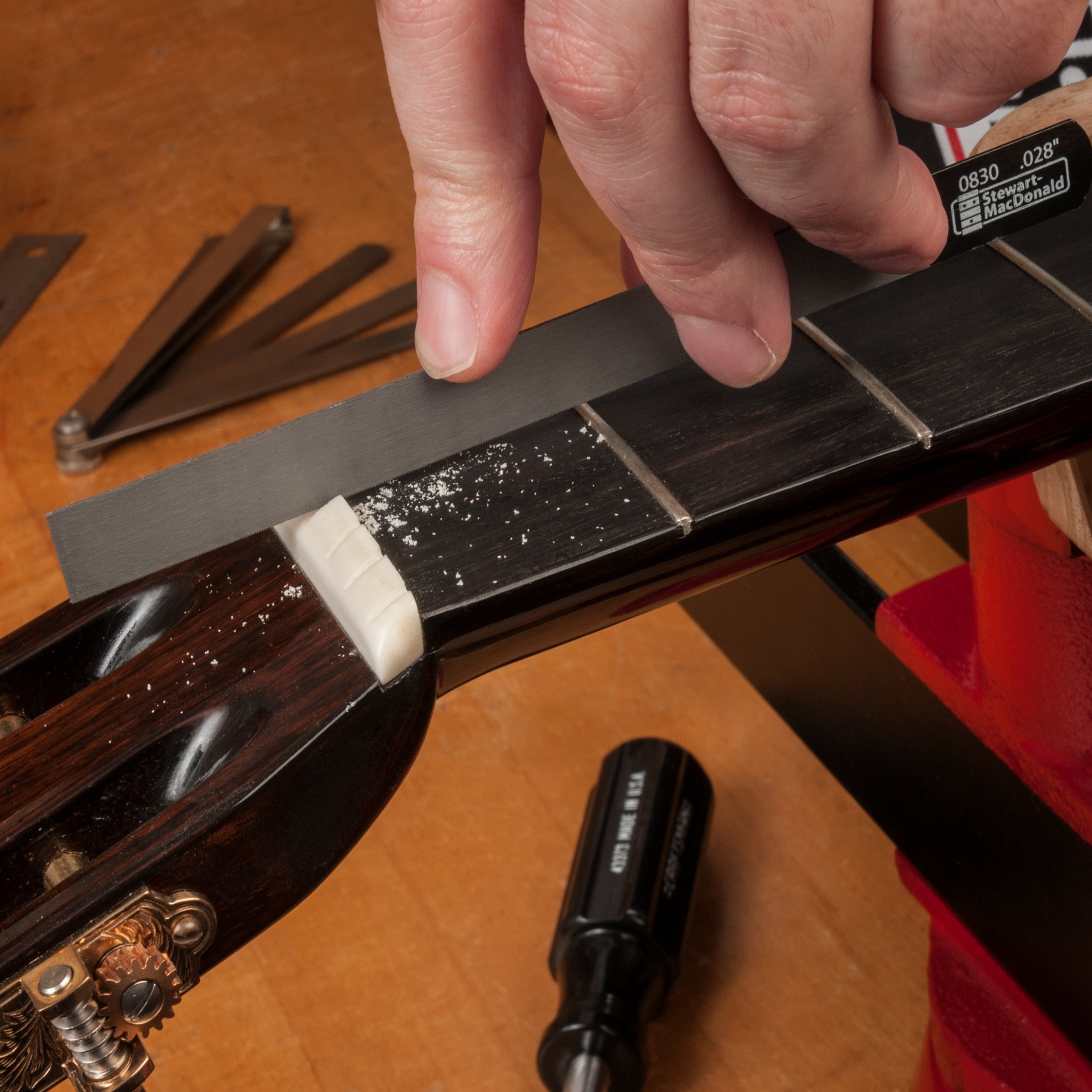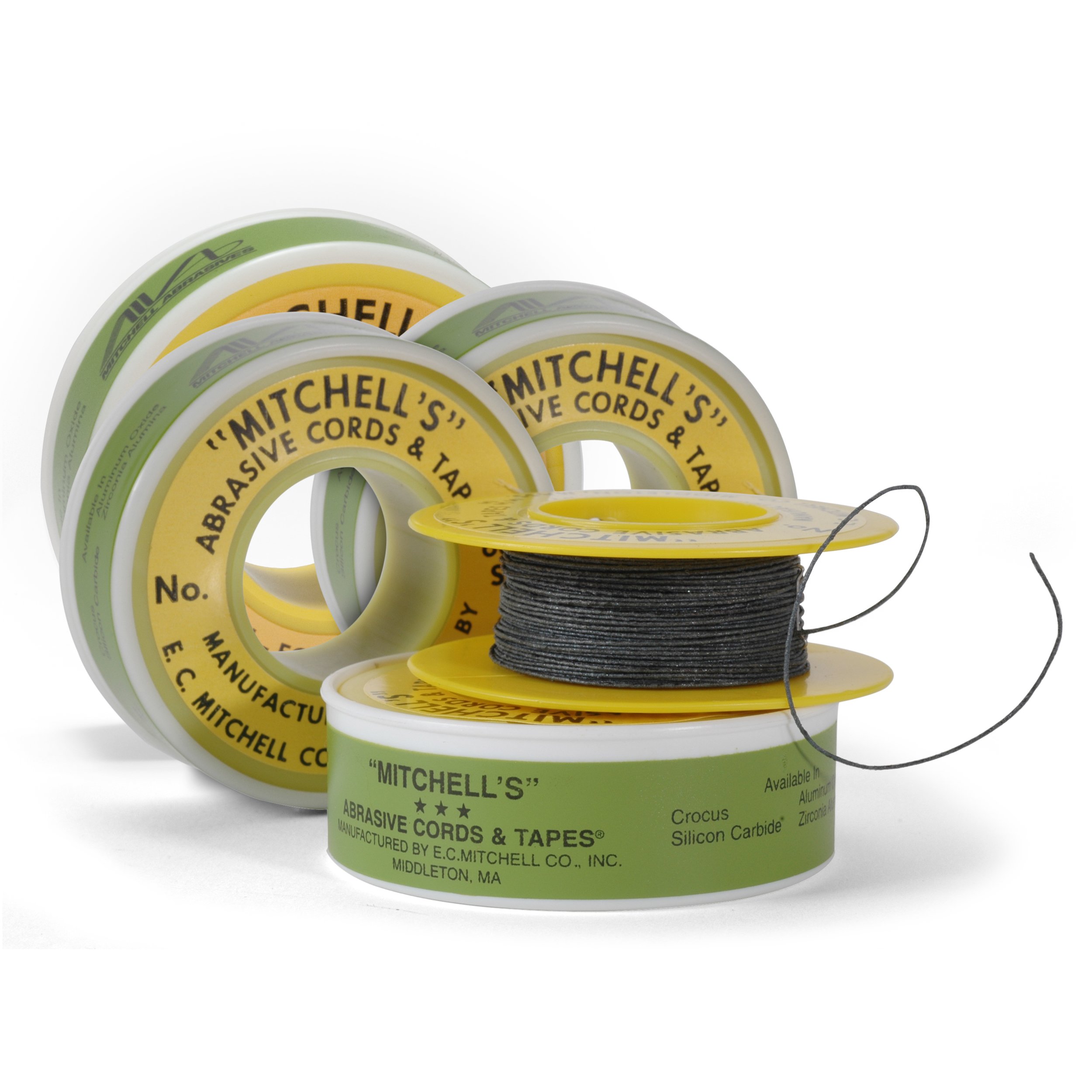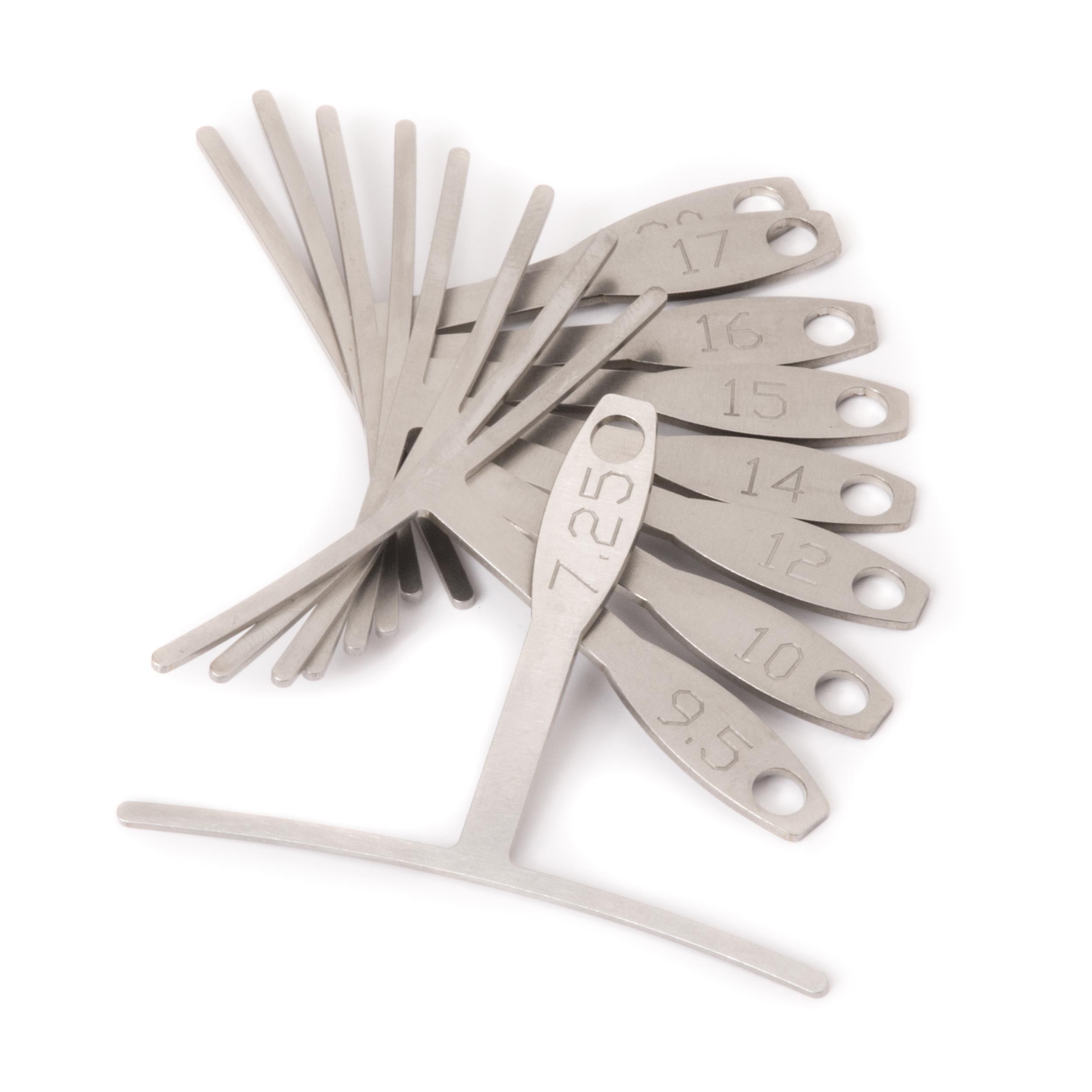Clean up your old electric guitar saddles
If your guitar saddles are grungy or banged-up, they’ll buzz, break strings, and even make you play out of tune. But the fix is easy... Lots of the guitars I repair show up with saddle problems: Sharp saddles that break strings Worn saddles with burrs that pinch the strings and mess with tuning Wrong-size slots that cause buzzes Here’s a Gibson that’s been causing trouble onstage by breaking strings. Look how badly corroded these saddles are. See that whitish buildup? They’ve developed rough edges that snag and break the strings. Remove these crusty metal parts and give them a good soak in a mix of naphtha and 3-in-One Oil. This saturates the parts and helps loosen them up. I used a toothbrush to remove the corrosion and loose rust, then carefully removed the screws. (Wear protective gloves to handle these chemicals.) After the toothbrushing, I gave the parts another bath in a fresh batch of the naphtha/oil mix, followed by a quick rinse in acetone to degrease them. I dried them off and used a fret dressing stick to take off any remaining crud. I also used the dressing stick to smooth out any nicks in the saddle while I was at it. I cleaned up the slots with nut slotting files, then followed up with abrasive cord to remove any file marks and smooth out the string surface nicely. I reinstalled the saddles, using understring radius gauges to make sure their saddle radius remains true (higher saddles in the middle, lower on the ends). This bridge is now ready for more years of live playing. Let's move on to another guitar: one of the oddest-looking Fenders I’ve ever seen... This is the sad remains of a 50s Fender Esquire that’s been... um... customized over the years. The owner was going to restore it, but decided to leave it as-is. It's like a piece of folk art, and after all its heart is pure 50s Fender goodness! So we’ll fix the saddles and leave the bodywork alone. Many Telecasters have 3-saddle bridges rather than 6 saddles. Some of these saddles are cut from screw-threaded rods, and don’t really fit string gauges properly. These can often buzz and break strings, and on top of that, it’s hard to get precise string spacing in those threads. For these, I determine the string spread with my string spacing rule and then use nut slotting files to open the threads to fit the individual string gauges. A 3"x5" card protects the bridge pickup from the filing. These properly-spaced slots aren’t so prone to breakage and buzzes. Teles with unnotched brass saddles have tuning and string spacing issues, especially for the heavy-handed player. For these, I’ll again lay out the string spread and notch the smooth saddles. On a vintage Tele, you might want to replace the saddles rather than file the originals. Save those unmodified originals in case you sell the guitar someday. Slot the saddles just deep enough so the top of the string is flush with the top of the saddle. Slot the saddles so approximately half the string is seated in the saddle. This prevents unwanted buzzing in the saddles while securing the strings. Clean these up with abrasive cord and set the radius with the understring gauges and we’re ready to rock. These rusted, worn saddles have bad string-to-saddle contact, resulting in buzzing. Before removing them, I measured their locations so it was quick to re-install them in the same intonation. The screws were difficult to turn, so I soaked these in the napatha/oil mix. When they came out of the oil the screws turned freely, and they cleaned up well. I smoothed out the grooves and burrs with needle files and a fret dressing stick. When doing this, watch for sharp areas around the height adjustment screws. I went over the saddles with Micro Mesh pads to polish them up, and got nice smooth saddles with excellent string contact. (That’d be like waiting for a cavity before brushing your teeth!) Saddle cleanup is part of my regular maintenance routine on customers’ instruments. Better saddle/string contact means better transfer of tone and sustain — and happier customers!Your funky old saddle’s gonna mess you up!

Keep that saddle clean, partner...
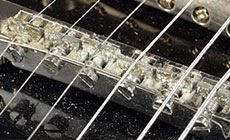
Let’s wrangle up some clean saddles:
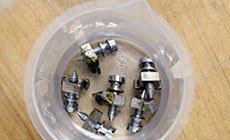
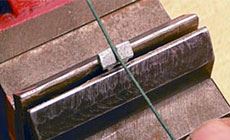
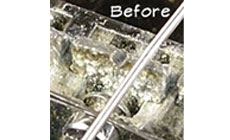
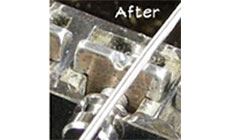
Get a load of this guitar!
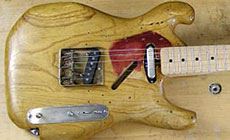
Tele: threaded saddles
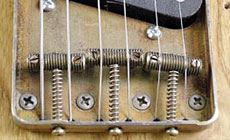
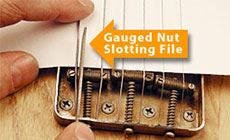
Tele: smooth saddles
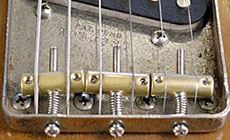
Unwound strings:
Wound strings:
One more example: a Strat
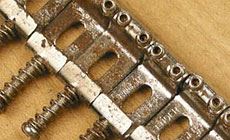
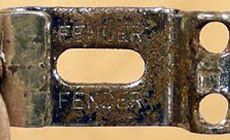
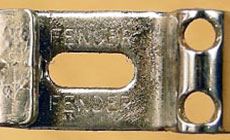
Why wait for trouble before cleaning up your saddles?
